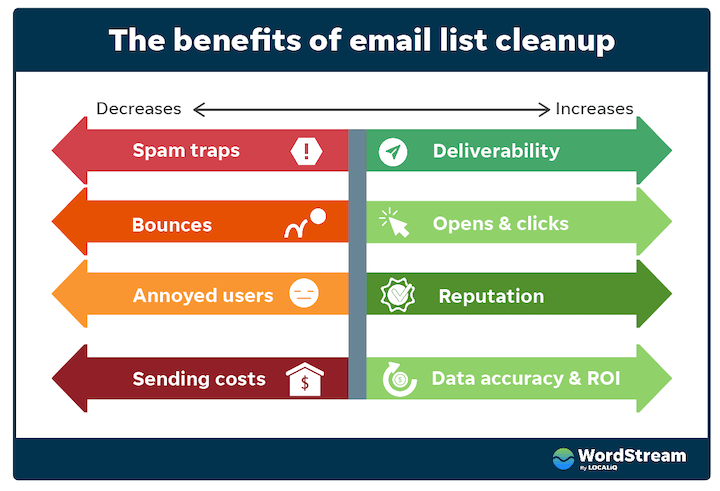20 Recommended Suggestions For Picking Email List Sellers
Wiki Article
What Do I Need To Consider When Buying What Should I Consider When Purchasing A Cpa Email List?
It is important to take into consideration a variety of aspects when buying the CPA email list. This will help ensure that the list you purchase is top-quality and is in line with legal standards and relevant to your company's goals. Here's what you should be aware of: 1. Quality of data and accuracy
Source of data: Check the origin of the lists. Trustworthy companies typically obtain their data from reliable sources such as trade associations or directories. Avoid lists that are compiled by scraping or other unreliable methods, as they could include outdated or inaccurate information.
Verification process: Check to determine if the email list was validated recently. This can reduce bounce rates and also ensures that you're reaching active, valid email addresses. Ask how often this list is cleaned and updated because CPAs are often changing firms or even jobs.
Segmentation: A reliable CPA database will offer segments to choose from. This includes the location (city or state), industry specializations (e.g. auditing or financial planning, taxation) years of experience and the size of the firm. This will help you improve the effectiveness and relevance of your campaigns.
2. Conformity to Legal Regulations
Data Privacy Laws â Ensure your email list complies the law on data protection, such as the General Data Protection Regulation, the California Consumer Privacy Act or any other local rules. Lists must include email addresses that were legally obtained, and with valid consent.
Compliance with CANSPAM Act: In order to comply with the CANSPAM Act, which regulates commercial email, it is important that your email list conforms to the CANSPAM Act. It is essential to offer opt-out options and refrain from using misleading subject lines or other content. Infractions to the law could be punished with fines and legal issues.
Opt-In Consent: Check that email addresses are obtained via opt-in consent where recipients have agreed to receive emails from third party marketers. This will reduce the risk of complaints about spam while also increasing engagement.
3. Provider Reputation
Reputable Provider: Examine the reputation of the company extensively. Check reviews, case studies and testimonials to assess the experience of past customers. Data from established providers is more accurate and reliable.
Transparency: Providers must be transparent about how they collect data and how often it's up-to-date. If the service provider isn't able to explain clearly their process and the reasons behind it, they should be flagged as an alarm.
Customer Support: A reliable customer support service is crucial for those who require help with making lists, troubleshooting issues or understanding the regulations for compliance. A solid support system will save you time and effort throughout the course of the campaign.
4. Cost and Return on Investment
Pricing Models. The different service providers offer various pricing models. Some charge per contact while others charge a flat-fee or subscription. Examine ROI expectations against costs and balance the price and quality of the list.
Refund Policy: Request whether the service provider has the option of a replacement or refund for the event that a significant amount of emails are not correct or inactive. A guarantee may give you security.
Cost vs. Quality: Don't only focus on cost. It's tempting to buy a cheaper list, but if the quality is not good this could lead to low participation as well as large bounce rates. Make sure you purchase lists that provide value through data accuracy and segmentation options.
5. Data Usage and ownership
Single-Use and Multiple-Use. Multiple-Use: Clarify whether you're buying the list for a single use or when you own the list and can use it for ongoing campaigns. Lists for single-use may be cheaper, but having the list allows you to use it for longer-term campaigns.
Shared Lists: Determine whether the list is solely yours or shared with other buyers. shared lists: Determine whether this list of email addresses is solely yours or is shared by multiple buyers. Email lists shared with others could cause audience fatigue when recipients receive a flood of emails from other organizations.
6. Data Format and Integration
CRM Compatibility: Make sure the list is in a format compatible with the CRM software or marketing email like CSV or Excel. The data can easily be moved and manipulated.
User-Friendliness: Find out how easily the data can be divided and managed after the integration with your system. An organized list will allow you to personalize and target more efficient.
7. Ethical Aspects
Relevance of the content CPAs are professional professionals who are busy. It's therefore crucial to provide them with relevant and valuable content. Sending irrelevant messages can harm the reputation of your company or result in more spam complaints.
Avoid excessive emailing: Be aware of the frequency with which you send emails to people on your list. Insufficient communication could result in unsubscribes and spam complaints, or unsubscribes. This could negatively impact your sender reputation.
The article's conclusion is:
Prioritize the quality of data, legal compliance, as well as the credibility and track record of your CPA email provider, to make sure that you are getting value for your dollars. A well-planned segmentation process, ethical practices and targeted marketing will increase engagement and return on investment while preserving a positive brand image. View the expert cpa email list for site tips.

What Do I Need To Consider When Buying What Should I Consider When Purchasing Physical Therapists Email List?
There are several aspects to consider when buying an email list of physical therapists. This will ensure the list is accurate and in compliance with the law and also effective for marketing or outreach. Consider the following key factors:1. Quality of data and accuracy
Source of Information: Check that the company who hosts the email list collects data only from reliable sources like professional associations (e.g. the American Physical Therapy Association) or health directories. licensing authorities. This means that the addresses are accurate and reliable.
Verification process: Verify that the list provider maintains a regular verification and updating of information. A reputable provider will frequently cleanse their lists to eliminate invalid or inactive email addresses. This will ensure greater deliverability and less bounce rates.
Segmentation options: A great email list for physical therapists should have segments. You can filter therapists based on their location (city, province or country) and experience, as well as their specialization (e.g. pediatrics, orthopedics and sports physiotherapy) or the kind of practice. Segmentation allows you to target the right audience with tailored messaging.
2. Compliance with Legal Regulations
Data Privacy Laws: Ensure that the email list is compliant with applicable data protection laws like the General Data Protection Regulation (GDPR) in Europe as well as the California Consumer Privacy Act (CCPA) in the U.S., and other local laws. The data collected must be processed legally and with the consent of all individuals.
CANSPAM Act Compliance in the U.S. email marketing campaigns must be in compliance with the CANSPAM Act. The Act requires emails to contain opt-outs, an accurate subject lines, and a mailing address. By ensuring your list conforms to this law, you'll be decreasing the chance of being fined or legal problems.
Opt-in Consent: Make sure the list of email addresses has those who have opted-in to receive marketing messages. This means that physical therapists have agreed to be approached by third parties, which reduces the possibility of spam complaints and increasing the engagement of your email messages.
3. Provider Reputation
A reputable list provider is the best option. They are renowned for their high-quality, accurate lists. Check out reviews, testimonials, or case studies by other clients to determine the reliability of the list provider.
Transparency. Providers must be transparent when it comes to how they collect and update the data. If the company is unable to clearly explain how they collect data and how they collect it, it could be a warning sign that their information is not up-to-date or obtained through untested methods.
Customer Support - Ensure that the provider offers outstanding customer service, in the event that you have issues with your list or need help with compliance issues or integration of the marketing tool. A responsive customer service can assist you in saving time and avoid potential problems.
4. Cost and Return On Investment (ROI).
Knowing the pricing structure provided by your provider will aid you in making an informed choice. Some charge by the number of contacts, while others offer a subscription or flat-fee services. Check the cost against the expected return on investment to determine the most economical solution for your business.
Refund or Replacement Policy: Request if the provider offers a refund or replacement policy in case a substantial part of the addresses are invalid or bounce. If the list does not meet the expectations of you, this can protect your investment.
Choose a list based solely on price. If you select the list that is more expensive than the others, it could contain an than one inactive or incorrect email address. This could harm your campaign. Don't just go to the most affordable option. Focus on quality and segmentation.
5. Data Usage, Ownership and Access
Single-Use and. Multi-Use: Determine if the list is intended for a single use or whether you own the information and can use it for ongoing campaigns. A single-use list might be more affordable, however they restrict your future flexibility. Multi-use lists will be efficient for campaigns that last for a long period of time.
Exclusive vs. Shared lists: Determine if the list you are purchasing is exclusive or whether other buyers are able to buy it. Shared lists might have been overused, leading to email fatigue, which can lower engagement rates.
6. Data Integration and Format
CRM Compatibility - Ensure the list of emails you receive is in a format that can be integrated with your Customer Relationship Management (CRM) platform or an email marketing software like CSV. This will allow for easy management and integration of data.
Easy to use A list that is well organized should be simple to manage and filter. You can send more personalized and relevant messages if can identify and focus on physical therapists quickly according to pertinent factors.
7. Ethical concerns
Relevance: Physical therapists are specialization in their field. Therefore, your message should have worth. Beware of using irrelevant or generic information, as it can harm your brand image and reduce engagement.
Avoid Spam Avoid sending too many emails to contacts. Sending too many emails can cause spam complaints and unsubscribes. This can affect your sender's reputation.
Conclusion
When purchasing an email list of physical therapists, you must consider the accuracy of the information, legal compliance and the reputation. Choose a database that supports segmentation, is updated regularly and complies to data privacy laws. A list that has been thoroughly conducted and of high-quality will enable more targeted advertising, better engagement, and a better return on investment. Check out the most popular physical therapists email list for site examples.
